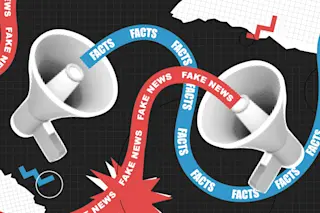“I can’t pay you a cent more,” Boris tells Sophie, who’s trying to sell him a car. But Sophie stands firm. “You’ll just have to match my price,” she tells him.
Around the corner, Ethan and Vickie are haggling over the price of her car. “I really can’t pay you any more,” Ethan says, but Vickie won’t budge, either. “The price is the price,” she says.
On the surface, these two exchanges might seem materially the same. But if you were to put them under a microscope, you would notice a subtle difference between them. Boris and Sophie’s verbal styles are similar to each other in some key ways; both use personal pronouns like you and I, for example. In contrast, Ethan and Vickie’s language styles are more divergent: While Ethan uses personal pronouns, Vickie uses none.
In isolation, such linguistic quirks are probably meaningless. But over the course of ...














